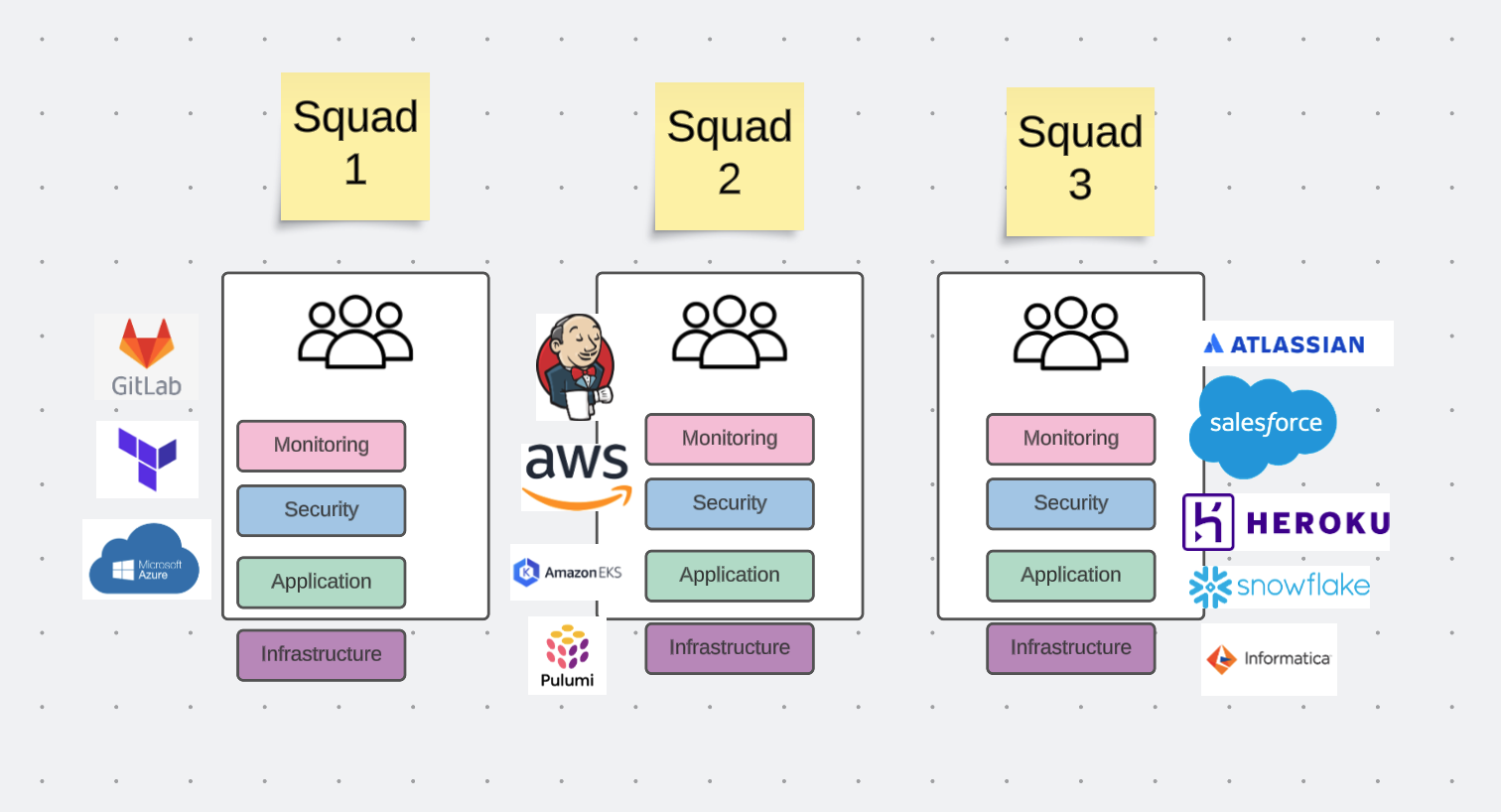We are all familiar with DevOps as a newer approach to software development. The concept is designed to enable developers and IT operations teams to work together. Platform engineering, on the other hand, is a more mature, older approach that has become new again.
Platform engineering, at its core, is the concept of productizing your internal development platforms to make it easier for developers to work. It is an emerging technology approach that can help accelerate the delivery of applications and the pace at which they produce business value. More recently, companies have grown their complex software architectures which have created silos for the teams that manage these various architectures. There may be multiple teams with various specialized skill sets and a single DevOps engineer who takes care of the continuous integration (CI) jobs to deploy and release to production.
Now let’s imagine that you have 10 squads that focus on building and maintaining different applications. Now all of these teams are building and operating 10 different platforms to run their applications, which creates inefficiency across the teams and reinforces silos. In this scenario, teams may spend half of their time building and maintaining the platforms instead of delivering business value. This creates a large cognitive load on developers.

This model becomes very hard to scale. Even though you have these squads managing their own infrastructure and platforms, you may find gaps because there is no centralized standard. So how do platform engineering concepts help with these complex landscapes and boost efficiency?
The Consulting Mindset
Platform engineers take all of the tools used to run an application across your various teams and standardize their usage. This enables self-service capabilities for your engineering organizations. Platform engineering can help centralize how you are deploying and running your applications across a complex software landscape. This includes not only the standardization of tools being used but also documentation and processes.
Establishing platform teams requires a consulting mindset and thinking about what resources, services and components can be centralized to better serve the rest of the organization. Some may refer to this as the center of excellence (COE) model, or simply IT for IT. This boosts efficiency and cuts down the time to delivery by providing a central set of tools and platforms for your engineering organization. Many may see platform engineering as a cost center, but the ROI is higher-quality releases, a standardized way of developing and delivering software and shorter delivery times.
Applying This Concept to IT Services Firms
In my consulting days, I worked for firms that focused on delivery for the Salesforce platform. We often had complex projects that we needed to deliver for large enterprise customers who had multiple applications integrating into their CRM. Each project team often had a different way of delivering and developing based on the customer’s needs. This created specialized skill sets, but we had no standard way of developing and delivering. Investing in a platform engineering team to support the delivery organization can add immense benefits for large consulting firms, enabling them to standardize the tools and platforms being used to run and deliver applications at scale.
Having a centralized place for your developers to go for process, documentation and tools to help them build and run applications can increase the speed at which they deliver. The efficiencies gained in having a smoother self-service flow for your developers and cutting down the delivery time are worth the investment. It brings significant long-term value that the customer will experience long after the engagement is completed, which can greatly impact future considerations for your firm.
IT services firms should find ways to align and centralize their technologies with platform engineering concepts. You may not be able to exactly build out an internal developer platform, but adopting some of the core concepts will help you be more efficient as an organization. For example, if you are an IT services firm specializing in delivering applications on the Salesforce platform, look for extensible DevOps platforms that can support your development organizations.
Also, look for ways to enable a self-service workflow to make it easier for your developers to work and scale. This may include investing in a platform engineering function to support the rest of the delivery organization. By establishing platform engineering concepts, you will be able to cut down the delivery time and create consistency in how you deliver and deploy applications for your customers.



